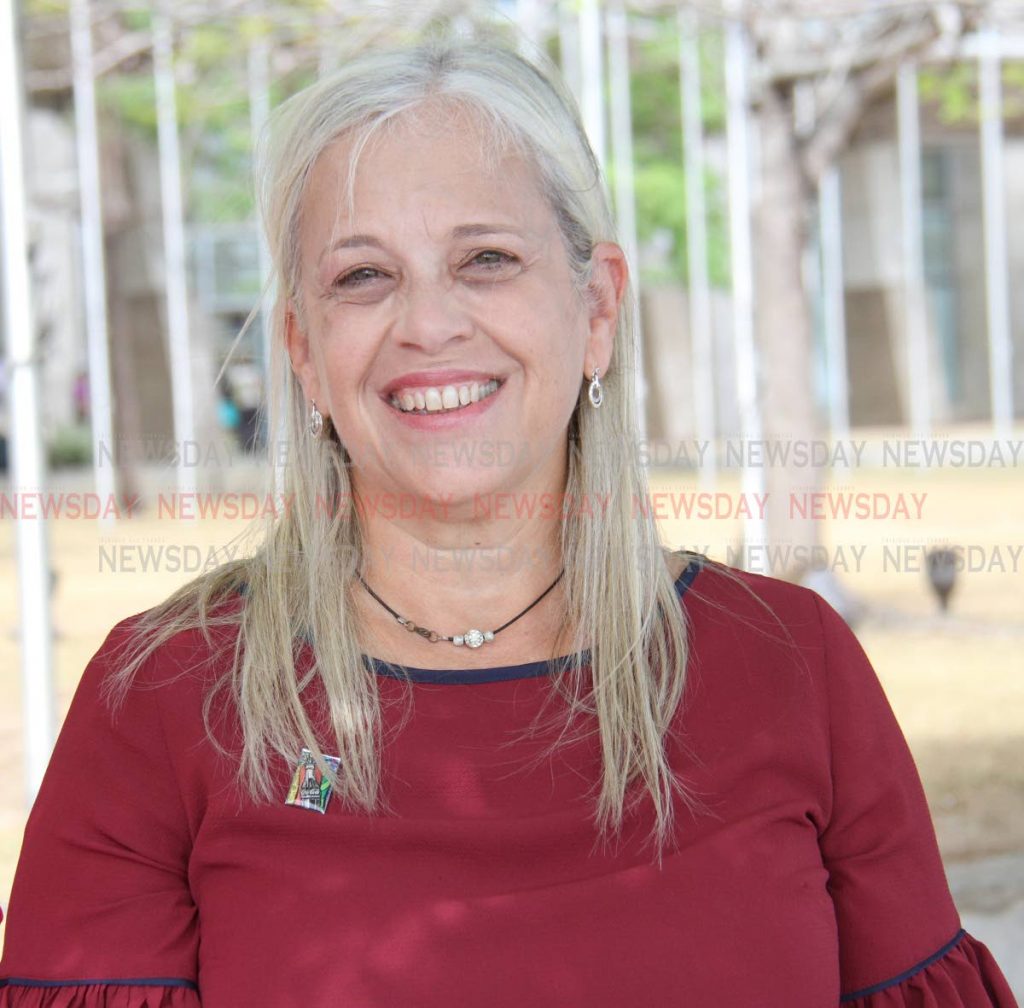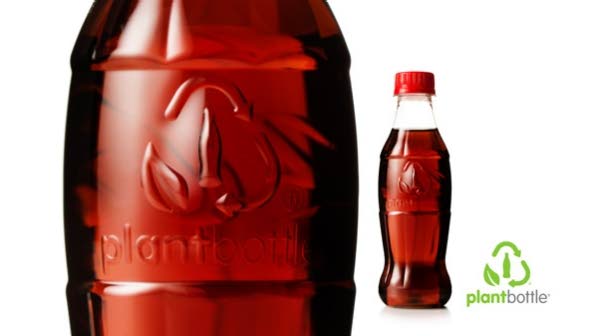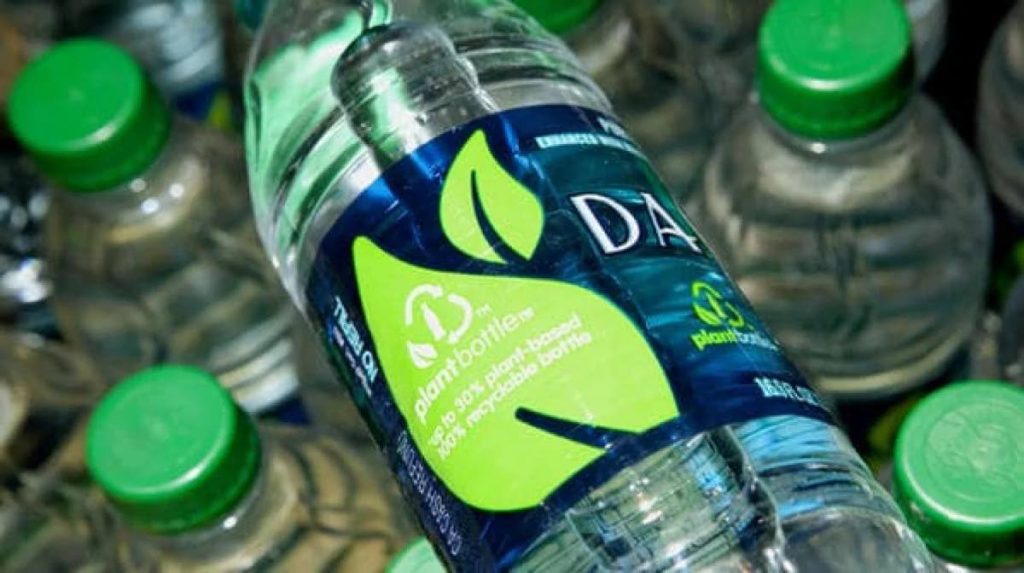The circular economy

IMAGINE a world where you never see a plastic bottle, container or package on the road, in the parks or in oceans and rivers. With the state of the world as it is now, where an estimated eight million metric tonnes of plastic ends up the ocean every year, what would have to be done to achieve such a goal?
Walewska Miguel, senior manager for public affairs, communications and sustainability for the Caribbean and Venezuela for Coca Cola, said the company plans to make the dream of a world without waste a reality. Speaking to Business Day last week at the Hyatt Regency Port of Spain, Miguel said Coca Cola plans to put processes in place to develop its already environmentally conscious company into one that has absolutely zero effect on the environment – and it is encouraging other major corporations to do the same. Coca-Cola is one of the most recognised brands in the world and has a presence in over 200 countries. Miguel acknowledged that the company does use a large amount of plastic for packaging, but said it is embracing the “circular economy.”
Instead of a linear economy, where you produce, use and dispose, in a circular economy you produce, use and re-use or recycle. Everything, be it a plastic bottle or aluminium can, Miguel explained, could be given a second life, even in another industry – for example, benches or the textile industry.
With this module in mind, Miguel said, Coca Cola plans to reduce the impact of its packaging on the environment to zero by the year 2030. And while the company is already making several strides toward lessening its impact on the environment, it still has a long way to go.
“We have developed great technology for reducing the impact of our packaging through things such as plant-based bottles, which we have here in TT where we are reducing the petroleum base for our plastic processes with plant-based materials. This has had a great effect in the reduction of carbon monoxide emissions,” Miguel said. “We have been working with these for quite a long time, but then we began to wonder is that enough? We continue to see waste ending up along river banks, coasts and in the ocean.”
So, Coca Cola committed to its 2030 with three pillars: innovation, collection, and partnership and education.

“By 2030, we are going to have every component of Coca Cola’s packaging 100 per cent recyclable,” Miguel said. “And by 2025, 50 per cent of the materials used to produce our bottles has to be recycled.”
Also by 2030, Coca Cola intends to be able to recover every can and bottle put on the market, and within that same time, several other companies would have modules to follow to make their businesses more environmentally sustainable, thus creating a circular economy worldwide.
Although it is a daunting task, Miguel said Coca Cola is closer to its goals than one might think. In several countries, the bottles used for water are 100 per cent recycled, and collection in several countries is high.
“We already we are recovering 50 per cent of our bottles, cans and containers worldwide. Some countries, like Mexico, the recovery rate is at about 75 per cent. We are making progress, but every market is in a different stage of development,” she said.
In TT, companies like the Solid Waste Management Company (SWMCOL) have already piloted several projects that focus on recovering and recycling plastic. The local waste management company even has its own recycling facility, a pilot project that collects plastic and breaks it down, and exports the recycled products internationally, and even sells it locally.
For now, the volume that they collect is not very high but the infrastructure is there.

Sanjay Jagrup, health, safety and environment manager for Caribbean Bottlers TT (a subsidiary of the Coca Cola Company), said several companies have also begun using recycled plastic as the main material for textiles, construction and even in decorations.
“We saw manufacturers who do the concrete pavers, plant pots, and benches out of concrete mixed with plastic. So, they grind up bottles and mix it with the concrete so it uses less concrete. That is something that could be used at home, in parks and so on. One of our workers made a centrepiece with flowers from plastic. When we went out to get quotations for the same thing we were told that it was $100 to $150 a piece. So I would say low-tier business, mid-tier businesses and major corporations could re-use plastic and make a profit out of it.”
The third pillar of Coca Cola’s sustainability goals is partnerships.
“How can we make sure that we develop these circular economy models?” Miguel asked. “We need everyone’s help. We need government to help give incentives to develop the recycling industry. We need NGOs to develop awareness and education programmes and help us with the collection process.”
She said people need to develop an attitude of the benefits of classifying waste and recycling.
“We need education to teach people to classify waste. In many countries, it is something that they have been doing for years, in others it is simply something that is not done. People do not separate glass, paper and plastic, people don’t wash bottles and so on,” Miguel said, and that takes time.
Even if Coca Cola achieves its goals for the next decade, its attempts to achieve a world without waste would only be a drop in the bucket, Miguel said, simply because Coca Cola is not the only company that uses plastic packaging. For the world to be rid of waste, she said, the entire world and not just one company has to be involved.
“Coca Cola is very committed to our environment, and developing practises that protect it, but all industries have to start working on this.”
Several other stakeholders, locally and internationally, have been introduced to the methods, and Coca Cola hopes they can use them to achieve their sustainability goals in the next ten years. Once the modules are developed and perfected, Coca Cola will encourage people and corporations to follow suit for the benefit of the environment.
“The technology is already there, we have to modules to achieve that so now we need to deploy that worldwide,” Miguel said.


Comments
"The circular economy"